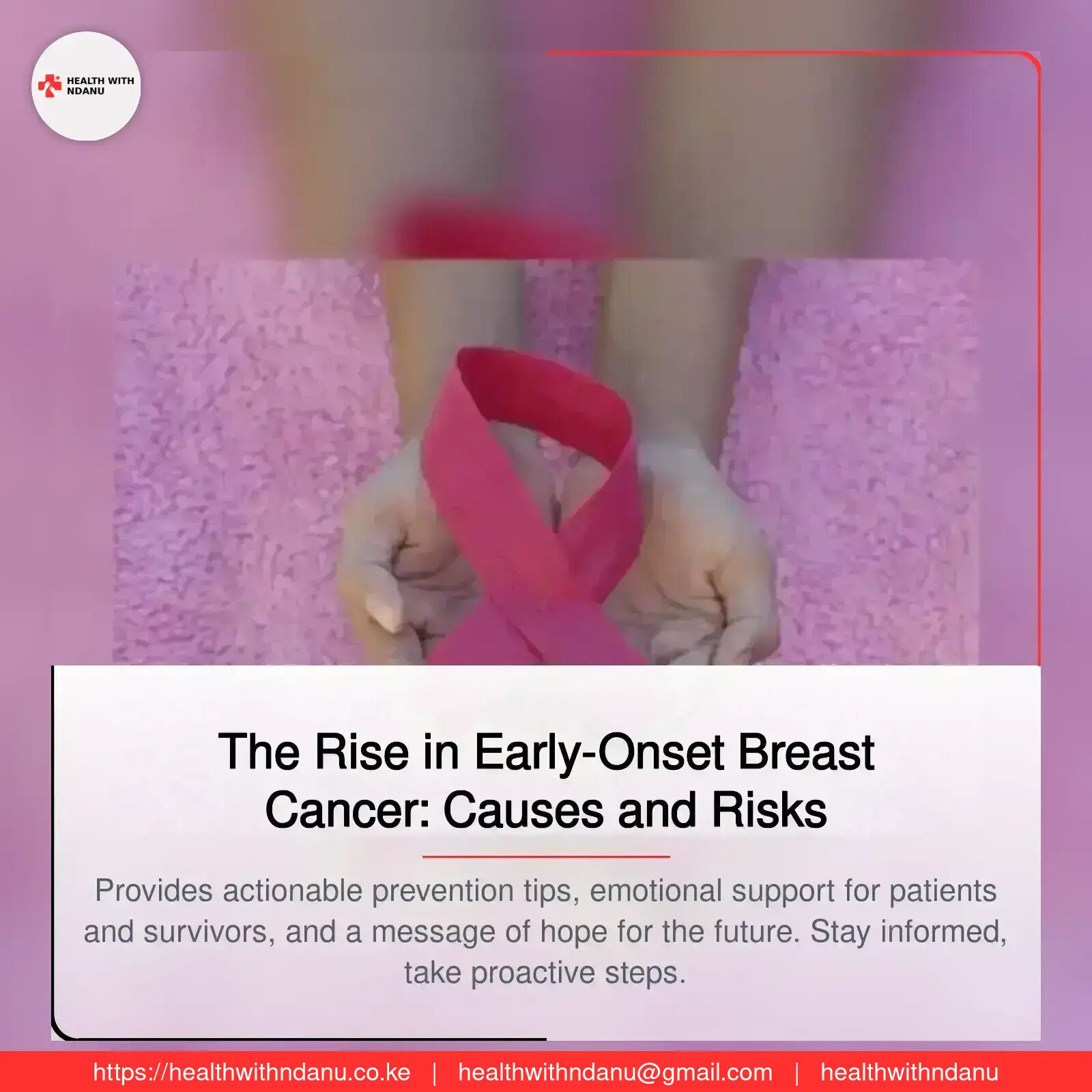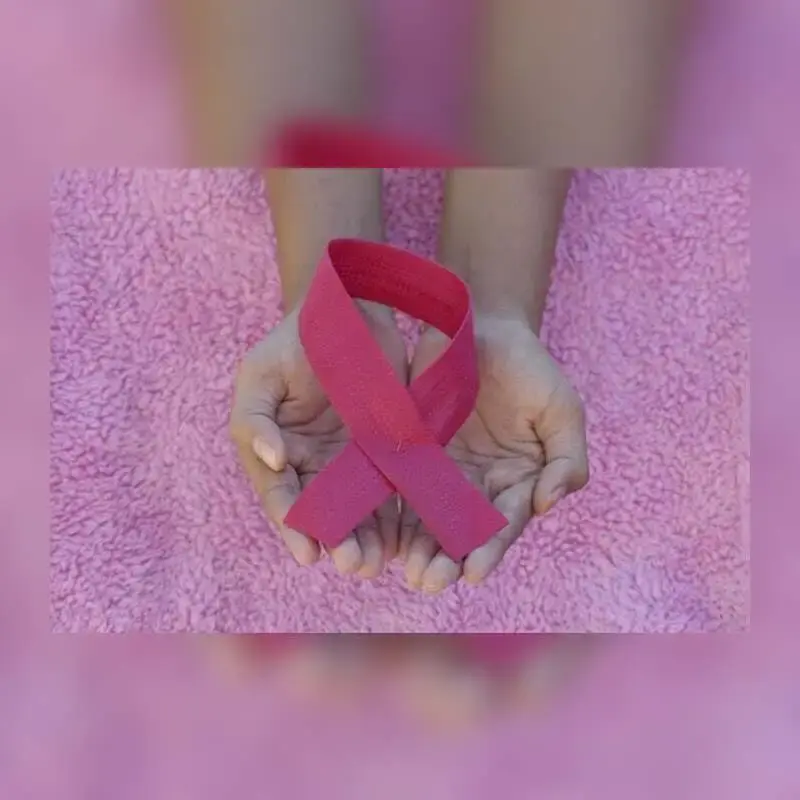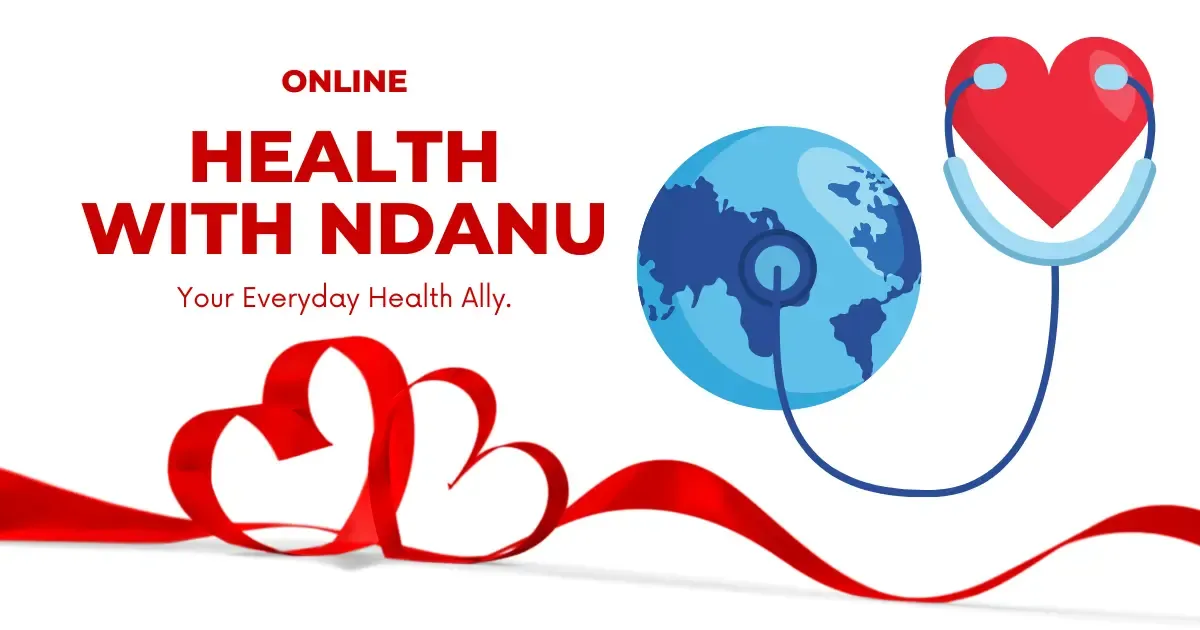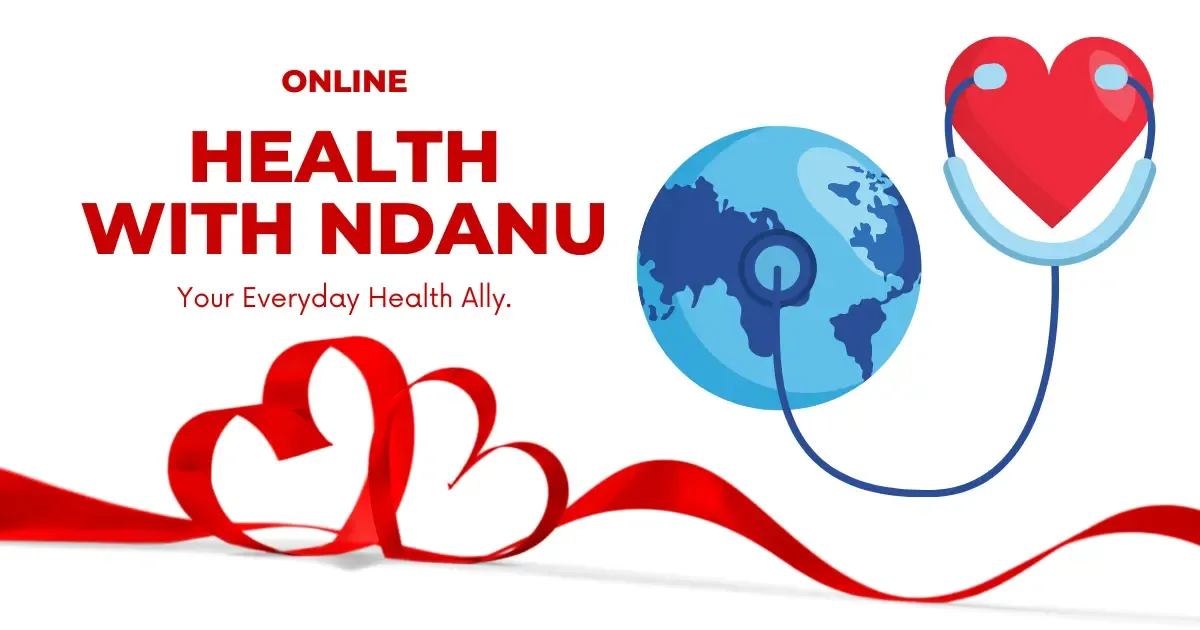The Rise in Early-Onset Breast Cancer: Causes and Risks
- by Diana Ndanu
- 21 February, 2025
- 0 Comments
- 5 Mins



Introduction
Breast cancer has long been considered a disease that predominantly affects older women. However, a growing body of research suggests that early-onset breast cancer—diagnosed in women under 40—is on the rise globally. This shift raises concerns among healthcare professionals and researchers, prompting investigations into potential causes, risk factors, and preventive measures.
Understanding Early-Onset Breast Cancer
Unlike postmenopausal breast cancer, early-onset cases tend to be more aggressive and harder to treat. Younger women often have denser breast tissue, making tumors more challenging to detect in routine screenings. Additionally, limited awareness and the misconception that young women are at low risk contribute to delayed diagnoses.
Expert Insight: Why Are Cases Increasing?
Dr. Linda Campbell, an oncologist at the American Cancer Research Institute, shares her perspective:
"We are seeing a concerning trend where breast cancer is being diagnosed at younger ages. While genetics play a role, environmental factors, lifestyle changes, and endocrine-disrupting chemicals may be accelerating the disease’s onset."
Possible Causes of Early-Onset Breast Cancer
1. Genetic Predisposition
A significant portion of young breast cancer patients carry genetic mutations like BRCA1 and BRCA2, which increase lifetime breast cancer risk by up to 70%. A family history of breast cancer can also elevate risk.
2. Hormonal and Reproductive Factors
Early menstruation (before age 12) and late childbirth (after 30) are linked to higher estrogen exposure, which may increase cancer risk.
The widespread use of hormonal contraceptives has also sparked debates about its impact on breast cancer incidence.
3. Environmental and Lifestyle Factors
Modern lifestyle changes contribute to higher exposure to carcinogens and endocrine-disrupting chemicals found in plastics, personal care products, and processed foods. Some key contributors include:
Obesity: Fat cells produce estrogen, which can fuel hormone-positive breast cancers.
Diet and Nutrition: High consumption of ultra-processed foods, sugary beverages, and alcohol is associated with higher cancer risk.
Exposure to Toxins: Pesticides, air pollution, and household chemicals containing bisphenol-A (BPA) and phthalates have been linked to hormonal imbalances.
Dr. Angela Patel, a leading epidemiologist, explains:
"We need to take a closer look at how endocrine-disrupting chemicals in our daily environment may be influencing the rise of early-onset breast cancer. These compounds interfere with hormone regulation, potentially triggering cancerous cell growth."
The Psychological and Social Impact of Early Breast Cancer
Being diagnosed with breast cancer in one’s 20s or 30s comes with unique emotional challenges. Many young patients face issues related to:
- Fertility concerns due to chemotherapy and hormone treatments.
- Career and financial instability while undergoing treatment.
- Mental health struggles such as depression and anxiety.
How Can Women Reduce Their Risk?
1. Regular Screenings and Self-Exams
Though mammograms are recommended for women over 40, younger women should discuss alternative imaging options like breast MRIs or ultrasounds if they have a strong family history.
Monthly self-examinations help in detecting unusual lumps or changes.
2. Adopting a Cancer-Preventive Diet
Dr. Olivia Thompson, a registered dietitian specializing in oncology, recommends:
"A plant-based, whole-food diet rich in antioxidants, omega-3 fatty acids, and fiber can support hormonal balance and reduce inflammation, which is a key driver of cancer."
Some top cancer-fighting foods include:
✅ Cruciferous vegetables (broccoli, kale, Brussels sprouts)
✅ Berries and citrus fruits
✅ Fatty fish like salmon and sardines
✅ Nuts, seeds, and whole grains
3. Reducing Exposure to Endocrine Disruptors
- Avoid plastic containers with BPA and phthalates—opt for glass or stainless steel instead.
- Use organic skincare and household products free of parabens and artificial fragrances.
- Filter drinking water to remove contaminants like heavy metals and pesticides.
Final Thoughts: A Call for More Research and Awareness
The rise in early-onset breast cancer is a wake-up call for both the medical community and the public. While genetic predisposition plays a role, lifestyle and environmental factors cannot be ignored. Greater awareness, better screening options, and policy changes regulating harmful chemicals could help curb this alarming trend.
Dr. Sarah Newman, a breast cancer researcher, concludes:
"This is not just about genetics anymore. The rapid increase in young women being diagnosed tells us that external factors are at play. More research, better preventive strategies, and public health initiatives are crucial to reversing this trend."
A Message of Hope:
"As a woman, this issue deeply concerns me. I pray that one day, we will find a cure for breast cancer and all other forms of cancer. To all the brave women battling breast cancer, you are not alone. Your strength, resilience, and courage inspire us all. To the survivors, your journey is a testament to hope and perseverance. Science is advancing, and together, we continue to fight for a future where no one has to fear this disease. Keep holding on, keep believing—there is always hope."
Medical Disclaimer:
This article is for informational purposes only and should not be considered medical advice. Always consult with a healthcare professional regarding any concerns about breast cancer risk and screening.
Got Your Own Experience? Share with us
Popular Categories
Mablogu Zinazobambwa Sana
Daily Newsletter
Get all the top stories from Blogs to keep track.



